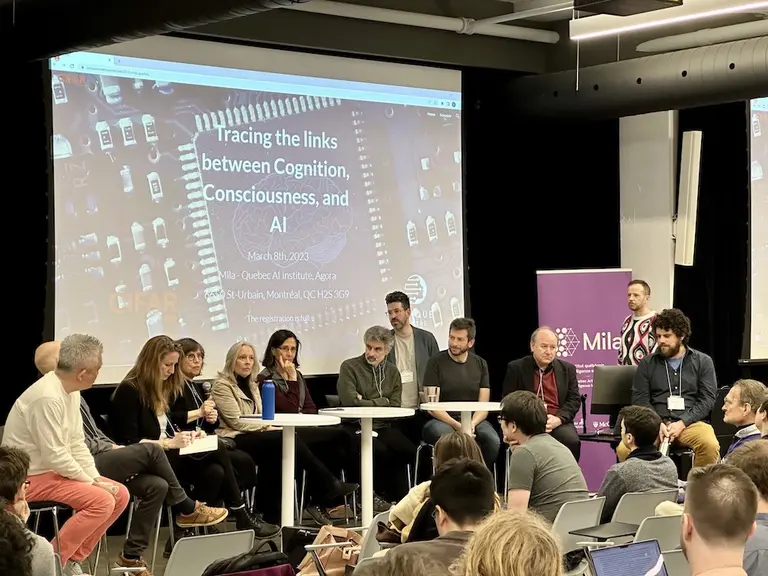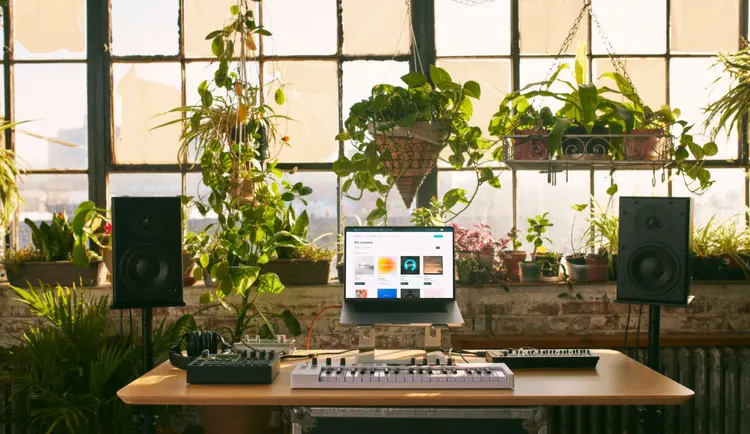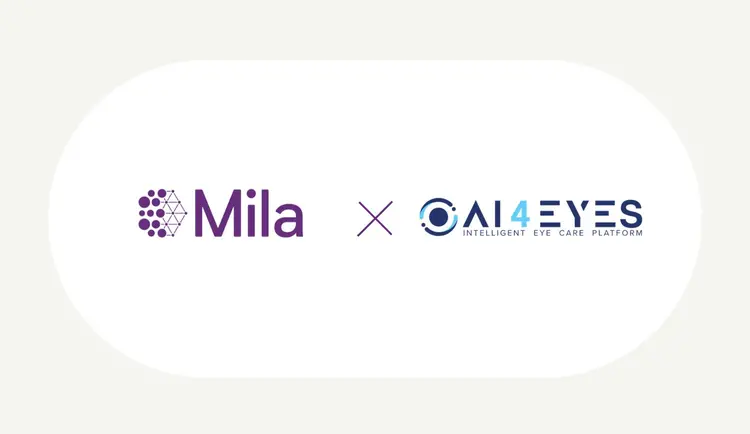
On March 8, 2023, Mila researchers Blake Richards and Guillaume Lajoie co-organized at Mila a workshop to explore the links between the brain and AI. Titled “Tracing the links between Cognition, Consciousness and AI,” it brought together multidisciplinary experts on the margins of COSYNE, the world’s largest computational neuroscience conference which took place in Montreal for the first time.
Researchers from cognitive sciences, philosophy, psychology and AI, including Mila Founder and Scientific Director Yoshua Bengio, discussed fundamental questions: Why have brains evolved the way they have? Has consciousness emerged for a reason, and how do we measure it? How can we get machines to learn concepts and make analogies?
“The idea was to have a wide range of expertise from people thinking about “hardware” in the brain to cognition to the philosophical aspects of AI,” according to Guillaume Lajoie, Assistant Professor at Université de Montréal, Canada CIFAR AI Chair and Core Academic Member of Mila.
“These are actually controversial topics in a sense, and these events are especially important because they try to remove a little bit of the taboo and take risks.”
The workshop sought to discuss a broad range of topics while avoiding an overly pragmatic view of the brain regarding the studying of consciousness, he said.
“They’re not the kind of topic that there’s broad agreement on in the field, or cross-field,” according to Blake Richards, Assistant Professor at McGill University, Canada CIFAR AI Chair and Core Academic Member of Mila.
“When you’re trying to understand the connection between concepts like attention, memory, causal inference and consciousness, you need people who view these issues in different ways because you can’t know where the connections lie in advance, so you want to have a diversity of perspectives on it,” he said.
Some context on neuroscience and AI
In the early days, computational neuroscience and AI used to be part of the same discipline, the researchers explained. The prestigious NeurIPS conference was built around computational neuroscience and AI but as it increasingly shifted its focus on AI, COSYNE was born out of the need to focus on understanding how the brain works through models and tools and inversely, how to study the brain to improve AI.
Blake Richards, also program chair at COSYNE, said that the workshop “was a wonderful opportunity –with the computational neuroscience and systems neuroscience community coming to Montreal for COSYNE– to have this workshop happen so that the community could benefit from this interdisciplinary discussion.”
“This workshop was also a way to reinforce Montreal’s growing clout within the neuro-AI field, to help attract researchers here and leverage the expertise of local researchers,” he said.
A part of CIFAR’s program
Blake Richards also noted that the event’s co-sponsor CIFAR’s Learning in Machines and Brains program, which helped usher in the deep learning era, was also ultimately about getting neuroscientists and AI researchers to speak together.
“Likewise CIFAR now has the Brain, Mind, and Consciousness program to try to bring together researchers across disciplines to talk about these things, to get diverse groups of people talking about controversial but important topics in science and forming conceptual bridges across these disciplinary divides,” he concluded.
Recordings of all conferences held at the workshop can be found here.





